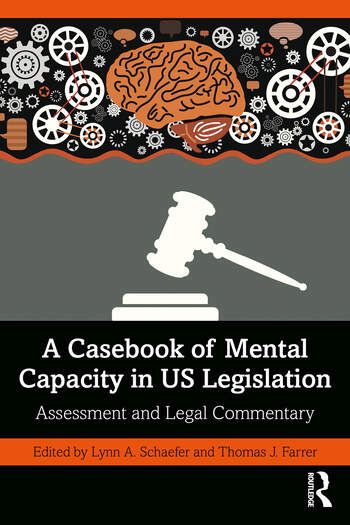
A Casebook of Mental Capacity in US Legislation: Assessment and Legal Commentary employs an applied and accessible approach to the assessment of mental capacity. Through the use of rich vignettes and case examples, the text provides legal commentary to illustrate state laws and ethical principles from varied decision-making capacities in distinct settings to fortify its assessment.
The text begins by providing a background about decision-making capacity as a construct and discusses how psychologists determine capacity, including practical guidance on assessment. It moves on to reviewing the decision-making rights in the United States, and provides ethical guidelines along with drawing the practitioner’s attention to the common pitfalls. The case presentations and legal commentary underline key areas such as the capacity to consent to medical treatment, make welfare decisions, enter into a sexual relationship, make financial decisions, make or revoke a will, litigate and make a contract, and stand a trial. It also includes a chapter focusing on integrating culture and diversity to capacity evaluations with the aim of increasing the practitioner’s competence.
This casebook will be useful for clinical neuropsychologists in practice, researchers and students looking to understand how to perform capacity assessments, as well as other related healthcare professionals. It is further aimed at legal professionals who are seeking to understand how individual types of capacity are defined and assessed.